“Before he can kill you, he must kill your name.”
~Scene from Gladiator
Deep State Tactics 101 Series:
For Part I.
For Part II.
For Part IV.
For Part V.
For Part VI – VIII.
For Part IX – X.
By Catherine Austin Fitts
In our 2018 Annual Wrap Up – The Real Game of Missing Money, I included a personal history to help explain why I am so confident that the excuses used to justify and cover up the missing money are bogus. This history described my experiences dealing with missing money and financial fraud in the U.S. federal government:
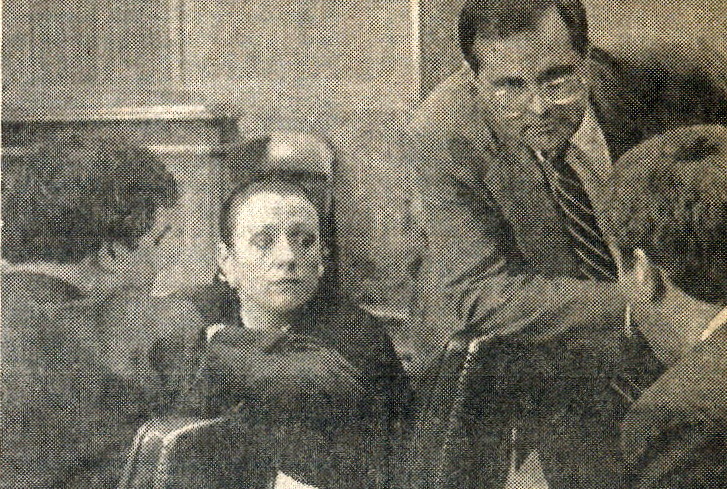
C. Austin Fitts, Assistant Housing Secretary, conferring with assistants during a break in her testimony before a Senate subcommittee, 1989. (The New York Times/Andrea Mohin)
Missing Money: A Personal History: 1989-2019
In my outline, the last section was going to be a description of the tactics used to slow me down or kill me–both literally and figuratively–in the process. As I finished the 2018 Annual Wrap Up, I concluded that it would be better to record and publish this material as a separate audio.
This series is my download about the tactics I have encountered personally or have observed at close hand. I have experienced a wide spectrum of covert operations, information and economic warfare, and dirty tricks with and from both governmental and private parties. Telling stories is a great way to communicate this experience; however, because stories expand the time necessary to convey the information, I will publish this material in several parts.
Here is my outline for the full series:
I. Introduction
II. Solari Report Resources
III. Control System Goals
IV. Tactics by Areas
A. Faith, Hope, & Love
B. Health
C. Communication/Surveillance
D. Mind Control
E. Brand/Prestige
F. Media (including Disinformation)
G. Control Files
H. Personnel Benefits
I. Financial
J. Legal
K. Politics
L. Culture & Consumerism
M. Cybersecurity
N. Covert Operations & Crime
O. Targeting of Children
P. The Beatdowns: Company, Neighborhood, Cohort
V. Hard Times
– My list of the personal worst
VI. Helpful Strategies
VII. Closing Thoughts
In Parts I and II, I covered I-III and the first four items in Part IV: Faith, Hope, & Love; Health; Communication/Surveillance; and Mind Control.
This week in Part III, I will cover Brand/Social Prestige and Media.
Movies often describe the role played by society and the media in framing our understanding of the world and our view of events and of each other. This week in Let’s Go to the Movies, I revisit one of my favorites: The Worricker Trilogy. (See my review here.) The Trilogy is a series of three movies produced by Sir David Hare for the BBC: Page Eight, Turks & Caicos, and Salting the Battlefield.
Describing corruption in winning support for and building a global network of CIA rendition centers, The Worricker Trilogy demonstrates the intimate dance between intelligence, media, and geopolitics and the manner in which debate, competition, and collaboration within the Anglo-American establishment craft an official reality.
Subscribers can e-mail or post questions and story suggestions for Money & Markets for this week here.
Not a subscriber yet? You are invited to join here!








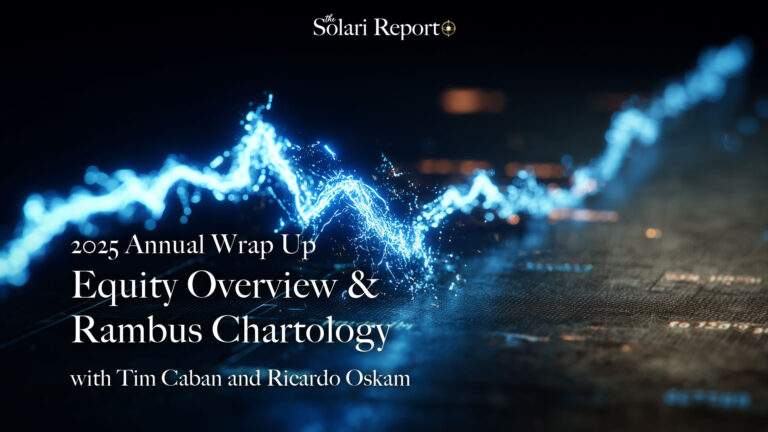
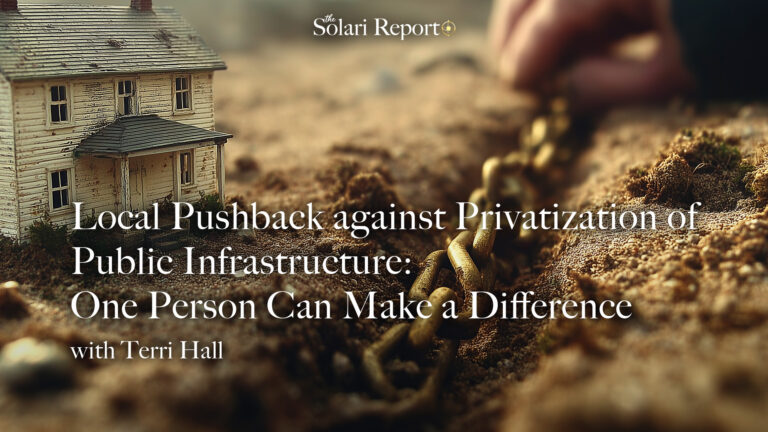


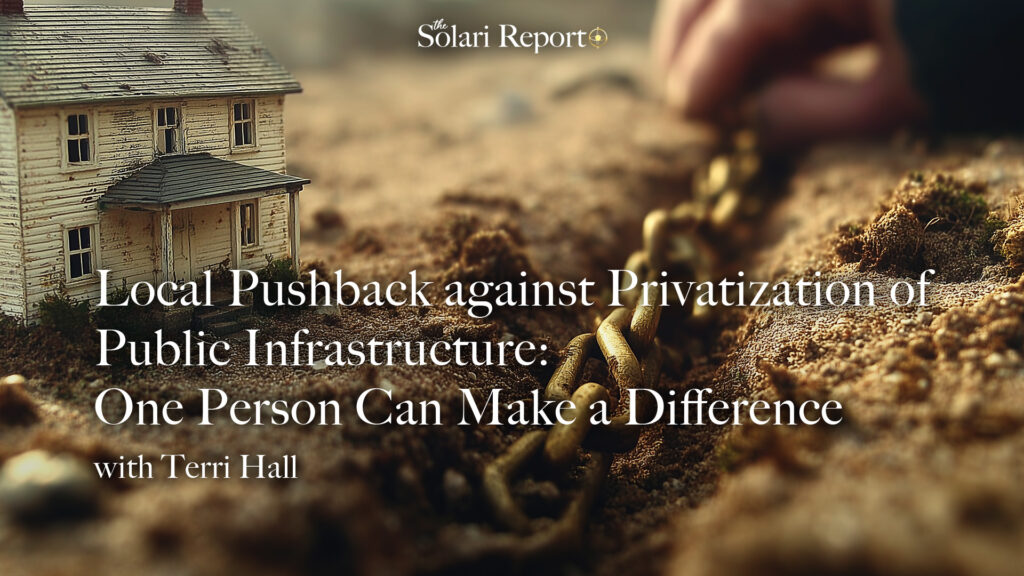












































































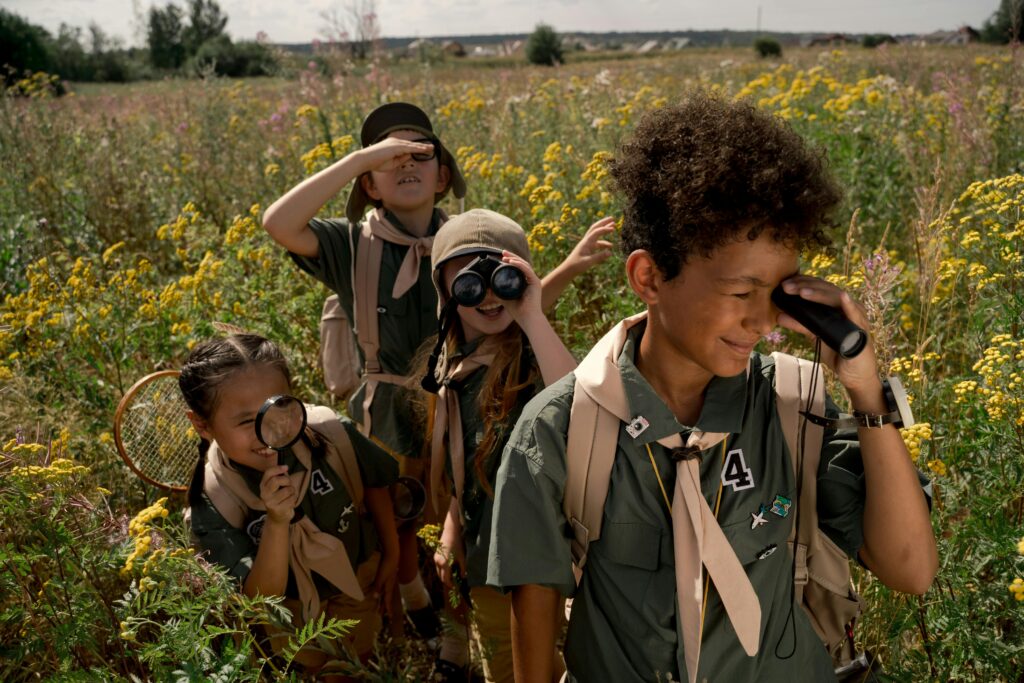


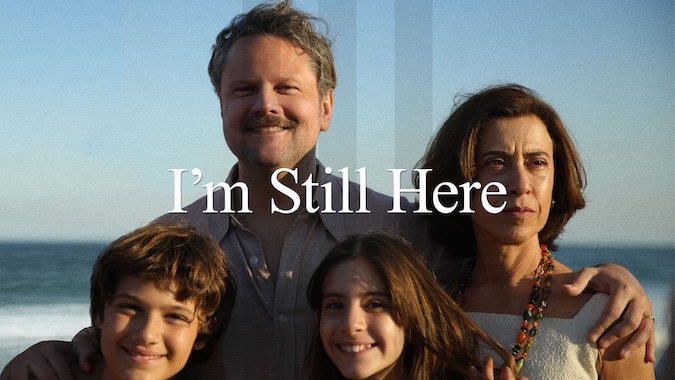
























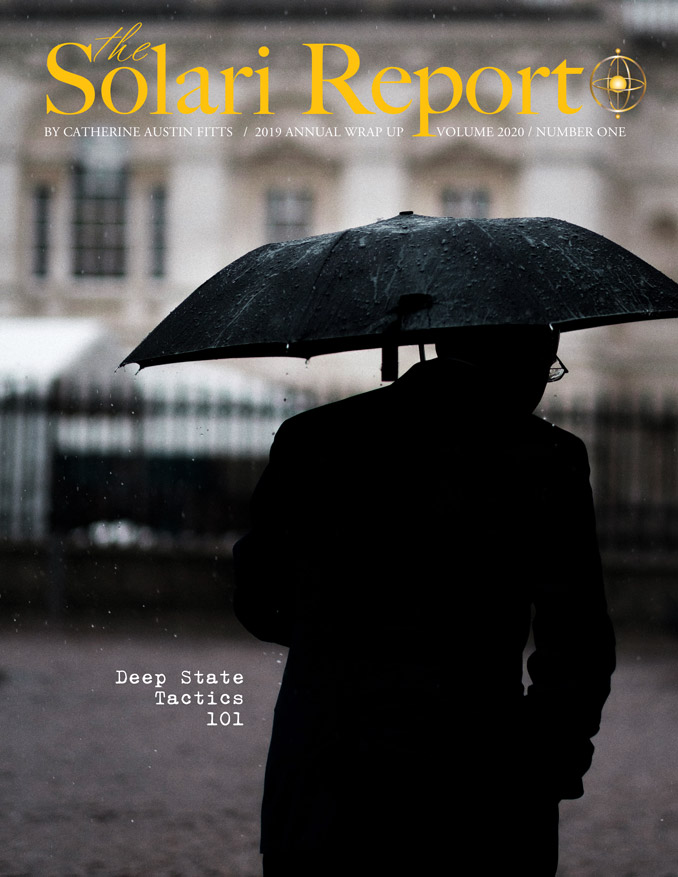

Great timing having an interview with Patrick Wood covering the Opportunity Zones. President Trump just signed an E.O. for affordable homes with one of the goals to cut down the red tape getting permission to build dwellings. I have included two videos, first is Pres. Trump talking about affordable home and Opportunity Zones and the second is a video featuring Ben Carson covering “tiny home” models on display in Washington DC.
https://www.youtube.com/watch?v=YUc6hY845W4&t=626s
https://www.youtube.com/watch?v=K5KKrj2Arhk
Great timing having an interview with Patrick Wood covering the Opportunity Zones. President Trump just signed an E.O. for affordable homes with one of the goals to cut down the red tape getting permission to build dwellings. I have included two videos, first is Pres. Trump talking about affordable home and Opportunity Zones and the second is a video featuring Ben Carson covering “tiny home” models on display in Washington DC.
https://www.youtube.com/watch?v=YUc6hY845W4&t=626s
https://www.youtube.com/watch?v=K5KKrj2Arhk
Dear Catherine
Part iii was not easy listening. You have mentioned the litigation before and the amount of time and money it had cost you but never in such detail. I was unaware of the extent of the nastiness, dirty tricks and perfidy of it all.
When your report on Deep State Tactics is finished it will be an amazing document to rival Machiavelli’s.
The saddest thing was to hear how you wound up losing the man you loved. You are a brave and honorable and courageous lady, and my heart goes out to you.
After I saw the movie The Forecaster, I wrote to Martin Armstrong asking how, after what the Department of “Justice” had done to him, he could stay in the country and not move abroad. He never replied to me. I just don’t understand it. Now, after having heard what you had gone through, may I ask you the same question? You could thrive anywhere in the world so why, when it was all over, didn’t you pack your bags and go someplace where you would be safe, appreciated and treated better?
Andrew:
Not sure if I answered the question. In my experience there is no “away” – the networks that I am dealing with are global – certainly well networked within the developed world. When I am in the US, I have lots of knowledge and relationships that can help me manage the interaction with any aspect of the various systems that I would not necessarily have abroad. I would describe my lifestyle as relatively nomadic. The trail that I follow is that of good people who I trust – unlikely to ever be a stranger in a strange land other than road tripping between locations.
I realise it was a personal if not somewhat intrusive question for me to have posed, so thanks for your answer. I left the US over 35 years ago so in reflecting upon my own choices I was interested to hear your decision making process. On a practical level I suppose your decision makes sense. It is something I have often pondered, so thanks for answering.
Dear Catherine
Part iii was not easy listening. You have mentioned the litigation before and the amount of time and money it had cost you but never in such detail. I was unaware of the extent of the nastiness, dirty tricks and perfidy of it all.
When your report on Deep State Tactics is finished it will be an amazing document to rival Machiavelli’s.
The saddest thing was to hear how you wound up losing the man you loved. You are a brave and honorable and courageous lady, and my heart goes out to you.
After I saw the movie The Forecaster, I wrote to Martin Armstrong asking how, after what the Department of “Justice” had done to him, he could stay in the country and not move abroad. He never replied to me. I just don’t understand it. Now, after having heard what you had gone through, may I ask you the same question? You could thrive anywhere in the world so why, when it was all over, didn’t you pack your bags and go someplace where you would be safe, appreciated and treated better?
Andrew:
Not sure if I answered the question. In my experience there is no “away” – the networks that I am dealing with are global – certainly well networked within the developed world. When I am in the US, I have lots of knowledge and relationships that can help me manage the interaction with any aspect of the various systems that I would not necessarily have abroad. I would describe my lifestyle as relatively nomadic. The trail that I follow is that of good people who I trust – unlikely to ever be a stranger in a strange land other than road tripping between locations.
I realise it was a personal if not somewhat intrusive question for me to have posed, so thanks for your answer. I left the US over 35 years ago so in reflecting upon my own choices I was interested to hear your decision making process. On a practical level I suppose your decision makes sense. It is something I have often pondered, so thanks for answering.
Fascinating talk, Catherine. Thanks for continuing to share.
I hope you cover “control files” in part iv. I have an intuitive understanding of them, but not the details. Are they just used as leverage in blackmail scenarios?
(I typed my comment last week in the comment box, but it didn’t post. I’m not sure if it’s my browser, me, or something else entirely. Anyway, here I am trying to reconstruct it… and I’ll be typing my comments in a separate document before posting from now on.)
A couple of comments/questions:
1) I am convinced that watching too much television will increase the chances of one to become en-tranced, perhaps unable to easily distinguish between television reality and reality. But with respect to your relative who was “memory wiped” after having seen Super Size Me, and still asking to get McDonald’s for her kids, could it be that she was simply on autopilot from the past and didn’t realize what she was saying? If you (had) reminded her of Super Size Me, (would) did it make a difference?
2) Regarding being “open to possibility,” I once again think about Taoist philosophy, specifically a philosopher named Liu An, who is credited with the Chinese idiom, 塞翁失馬(sài wēng shī mǎ), translated as “The Lost Horse,” by Moss Roberts. I couldn’t find a decent translation online, so this is from his book, Chinese Fairy Tales & Fantasies (1979):
A man who lived on the northern frontier of China was skilled in interpreting events. One day for no reason, his horse ran away to the nomads across the border. Everyone tried to console him, but his father said, “What makes you so sure this isn’t a blessing?” Some months later his horse returned, bringing a splendid nomad stallion. Everyone congratulated him, but his father said, “What makes you so sure this isn’t a disaster?” Their household was richer by a fine horse, which the son loved to ride. One day he fell and broke his hip. Everyone tried to console him, but his father said, “What makes you so sure this isn’t a blessing?”
A year later the nomads came in force across the border, and every able-bodied man took his bow and went into battle. The Chinese frontiersmen lost nine of every ten men. Only because the son was lame did father and son survive to take care of each other. Truly, blessing turns to disaster, and disaster to blessing: the changes have no end, nor can the mystery be fathomed.
#1 – my guess is not. This memory wipe event is something I have encountered often.
#2 – “All things work together for the good of them that love the Lord and are called according to his purpose.” Great story.
#3 – Yes, I believe I will do control files in part IV. The legal one will be with my attorney so we will get into it again.
Thanks Catherine!
Fascinating talk, Catherine. Thanks for continuing to share.
I hope you cover “control files” in part iv. I have an intuitive understanding of them, but not the details. Are they just used as leverage in blackmail scenarios?
(I typed my comment last week in the comment box, but it didn’t post. I’m not sure if it’s my browser, me, or something else entirely. Anyway, here I am trying to reconstruct it… and I’ll be typing my comments in a separate document before posting from now on.)
A couple of comments/questions:
1) I am convinced that watching too much television will increase the chances of one to become en-tranced, perhaps unable to easily distinguish between television reality and reality. But with respect to your relative who was “memory wiped” after having seen Super Size Me, and still asking to get McDonald’s for her kids, could it be that she was simply on autopilot from the past and didn’t realize what she was saying? If you (had) reminded her of Super Size Me, (would) did it make a difference?
2) Regarding being “open to possibility,” I once again think about Taoist philosophy, specifically a philosopher named Liu An, who is credited with the Chinese idiom, 塞翁失馬(sài wēng shī mǎ), translated as “The Lost Horse,” by Moss Roberts. I couldn’t find a decent translation online, so this is from his book, Chinese Fairy Tales & Fantasies (1979):
A man who lived on the northern frontier of China was skilled in interpreting events. One day for no reason, his horse ran away to the nomads across the border. Everyone tried to console him, but his father said, “What makes you so sure this isn’t a blessing?” Some months later his horse returned, bringing a splendid nomad stallion. Everyone congratulated him, but his father said, “What makes you so sure this isn’t a disaster?” Their household was richer by a fine horse, which the son loved to ride. One day he fell and broke his hip. Everyone tried to console him, but his father said, “What makes you so sure this isn’t a blessing?”
A year later the nomads came in force across the border, and every able-bodied man took his bow and went into battle. The Chinese frontiersmen lost nine of every ten men. Only because the son was lame did father and son survive to take care of each other. Truly, blessing turns to disaster, and disaster to blessing: the changes have no end, nor can the mystery be fathomed.
#1 – my guess is not. This memory wipe event is something I have encountered often.
#2 – “All things work together for the good of them that love the Lord and are called according to his purpose.” Great story.
#3 – Yes, I believe I will do control files in part IV. The legal one will be with my attorney so we will get into it again.
Thanks Catherine!
Your story is fascinating and inspiring Catherine!
We had an expression in the Chicago neighborhood where I grew up, used when we would see something that blew our minds or caused some level of consternation. It was around the time of the ascendancy of the trucker mythos. In abbreviated form: WTF, over. The pause is important. Hopefully it makes the translation into the typed word. This expression kept coming to me over and over again listening to how you were ‘worked’ (using the more polite word) over.
One of the particularly inspiring aspects is how you have kept your sanity, poise and sense of humor. I just finished a two year ordeal with a regulatory agency. I decided to take it as a spiritual quest, rather than as an attempt to put me out of business, bury me in paperwork, etc. Your story helps me keep what’s important in perspective.
Wonderful. See things as a spiritual quest and you are in a position to overcome what is upon you. You learn a great deal from what would otherwise be a highly wasteful process. If you have not read Castaneda’s material on the “petty tyrant” worth doing.
Thank you! Castaneda was a regular read for me in the 80s.